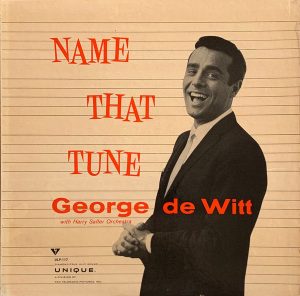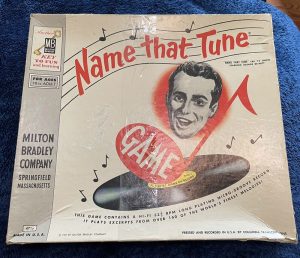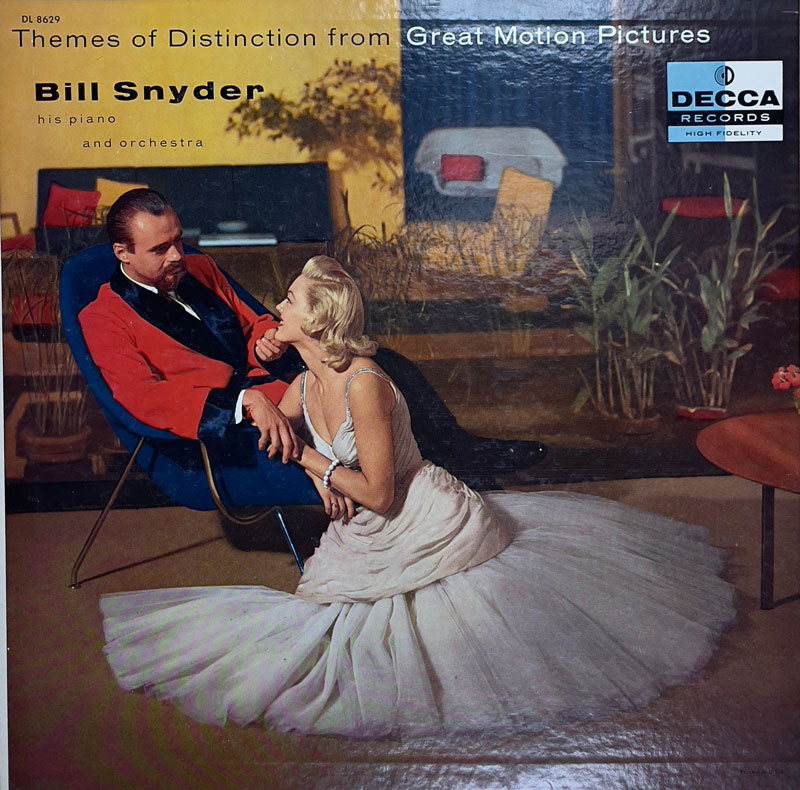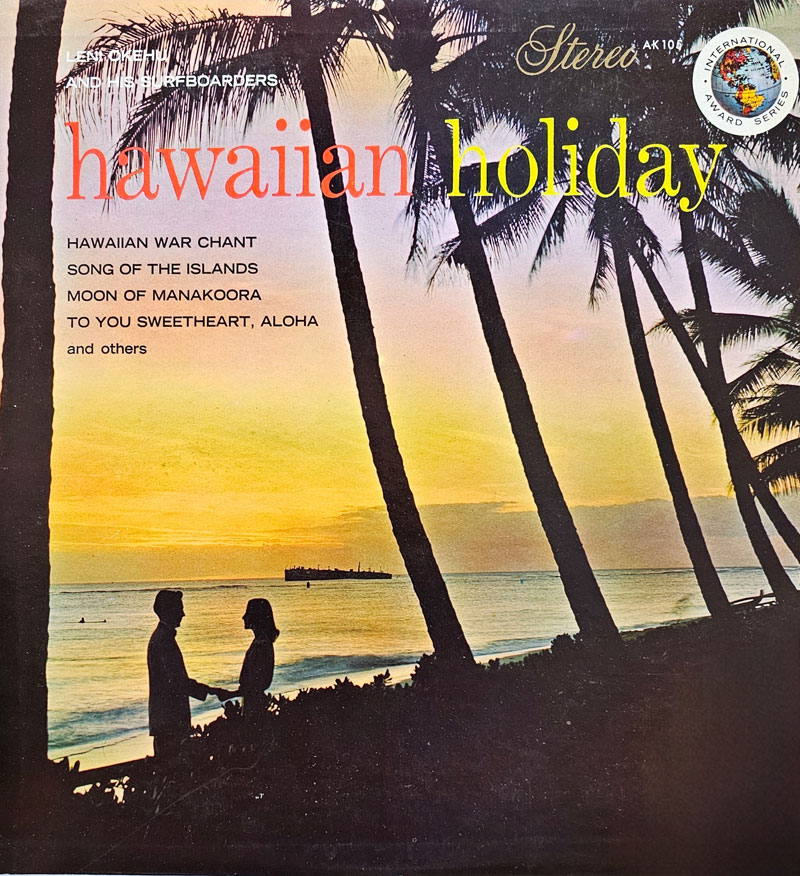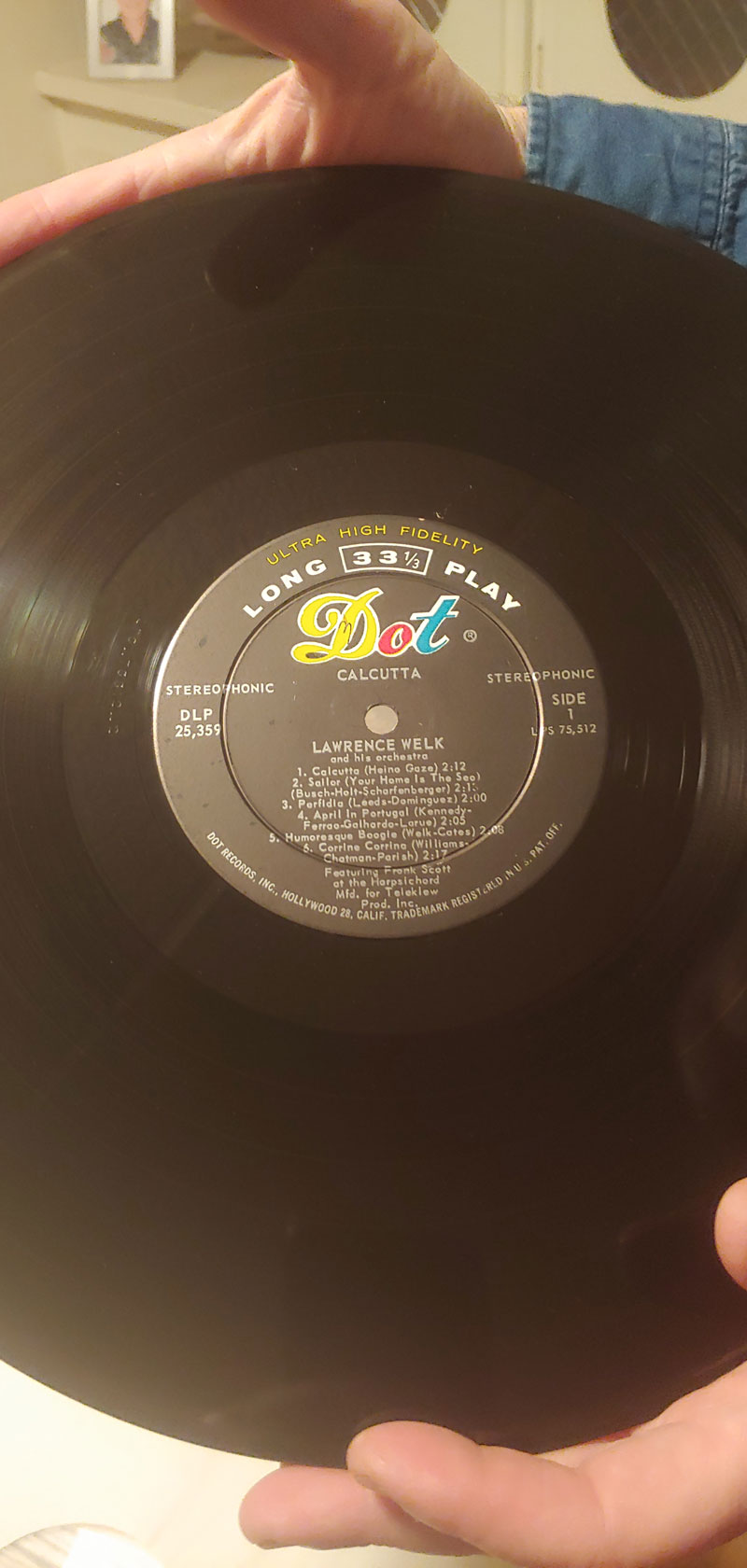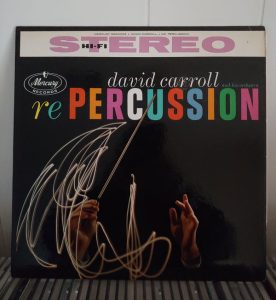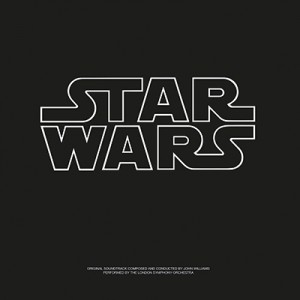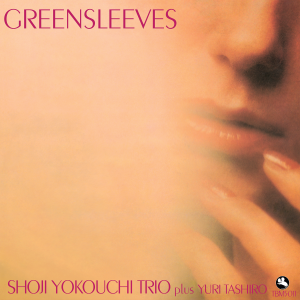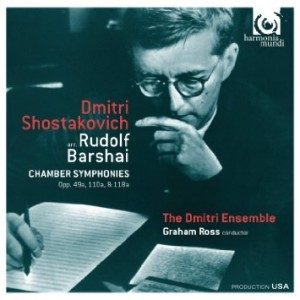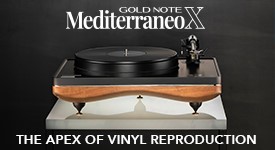Sometimes happiness arrives in simplest of forms, and this obscure LP by George Dewitt (1922 - 1979) is a perfect example. In today's world George Dewitt is unknown, but in the 1950s he was quite visible on TV as a game show host. He was also a singer. The game show was Name That Tune, and he was its host from 1953 to 1959. Name That Tune (RKO ULP-145) is also the name of his debut album from 1956.
I found this LP sometime in 2011 at the Goodwill store in Oxnard, California, and it exuded the kind of visual coolness that a collector of mid 50s vinyl cannot resist. It was also in mint condition, which is a rarity in itself. I've tried other RKO LPs, but none of them possessed the same level of what-the-hell-is-this coolness, nor were they in decent condition. Also, the other RKOs didn't sound anywhere near as superb. And if its appearance and obscurity weren't enough, I discovered a newspaper clipping inside the jacket announcing Dewitt's death on July 14th, 1979. My nerdy fantasy that the original owner could have known the artist only increased the coolness factor, which was already off the charts before I discovered the clipping that fell on the floor.
So, you must be wondering, is the music any good? It's beyond good. It's absolutely wonderful. The first time I played it was the best time I played it. I can't recall any other vinyl discovery that sounded as thrilling on the very first time hearing as this one. The first thing I noticed was Dewitt's magnificent voice, and second thing I noticed was the irresistible vintage sound. I'm a huge fan of the romantic school of male singing, and Dewitt's effortless approach to lyrics can be compared to Jack Jones and Vic Damone, who, like Dewitt, could sing the morning paper's headlines and make them sound like music. He could also sound like Perry Como, as in early 50s Como, when Mr. C's vocal ability was at its best
The album opens with a great performance of "Street Of Dreams." Dewitt is truly remarkable on this cut. His overall presentation is pretty much what I'd expect from Jack Jones, but when he reaches for the higher notes he sounds just like Perry Como did in the early 50s. The next cut is that good old "Tea For Two," and the only word that comes to mind is effortless, and effortless also describes Harry Salter's wonderful orchestra that backs Dewitt's every breath. Cut four is "The Lady Is In Love With You" and it swings like crazy, and Dewitt's vocal energy sounds unlimited. Cut five is "My Melancholy Baby," and he sings it exactly the way you'd expect Perry Como or Jack Jones to sing it.
Side two opens with "After You've Gone," and this time Dewitt again sounds a lot like vintage Como, but Como never swung like this, although Bobby Darin did! Cut five is "Baby Face. " My favorite performance is by Al Jolson, but Dewitt is almost as exciting and that's saying something. The piano solo is a big part of what makes this cut work, and it sounds remarkably right on my Sennheiser HD650 headphones. Side two closes with "Sleepy Time Gal," which is lyrically dated, as in downright politically incorrect, but when George Dewitt sings you just can't stop yourself from enjoying every word.
It's obvious that I like this LP a lot. I also like the sound an awful lot. I'm a huge fan of 50s era mono records. Mono versions of stereo LPs are mostly disappointing, and Sony's recent mono reissues of Johnny Cash and Miles Davis sound seriously wrong. However, this kind of mono is the kind of sound that every audiophile deserves to hear and to have. It's warm, tasty, rich, and hugely dynamic, and when it gets loud it never gets harsh. In fact, the louder you play this LP the better it seems to sound. I feel sorry for the high end enthusiasts who don't have access to this kind of sound in their music collections. They are sadly missing one of this hobbie's greatest pleasures.
There's little more for me to say about this LP. I'm thrilled to own it. The singing is out of this world, and the warm sound is delightful, and sadly not even possible today.
I'd like to address the issue of playing less than excellent vinyl, of which many great and great sounding LPs, like this one, were pressed on. RKO never pressed their titles on silent vinyl, and this is the quietest RKO I've ever encountered. It's been ten years since I played Name That Tune, and during that time I've used eight different phono cartridges. Two were traditional moving magnets, two were Grados (Grados are not moving magnets.) and four were moving coils. The unique way that each cartridge rejects surface noise is a vital part of their performance, and something that reviewers often ignore. For whatever my most recent playback experience with this LP is worth, the original Grado Reference cartridge, which happens to be Grado's first wood-bodied cartridge, played this LP almost as silent as a modern audiophile pressing. The Reference, like most high end Grados, is not edxactly accurate, but what it does right is unsurpassed. It can sound like bass-heavy sludge on some LPs, and bright on others, but the embraceable sound it drew from this LP was far beyond what I expected. It sonically seduced me beyond my wildest expectations, and it sounded completely different from my cheap and often delightful Ortofon OM 10, which sounded grainy, noisy, and musically dead.
When I started to write this review I was listening to the OM10 on my Micro Seiki DQ50 turntable, and I was stopped in my tracks by a dreadful case of writer's block. The only cure was to reinstall the Reference. The moment the former top-of-the-line Grado hit the opening cut, memories of my first encounter with this LP flooded my senses, and my fingers were anxious to type. The article that you just finished reading is the result of that experience.




